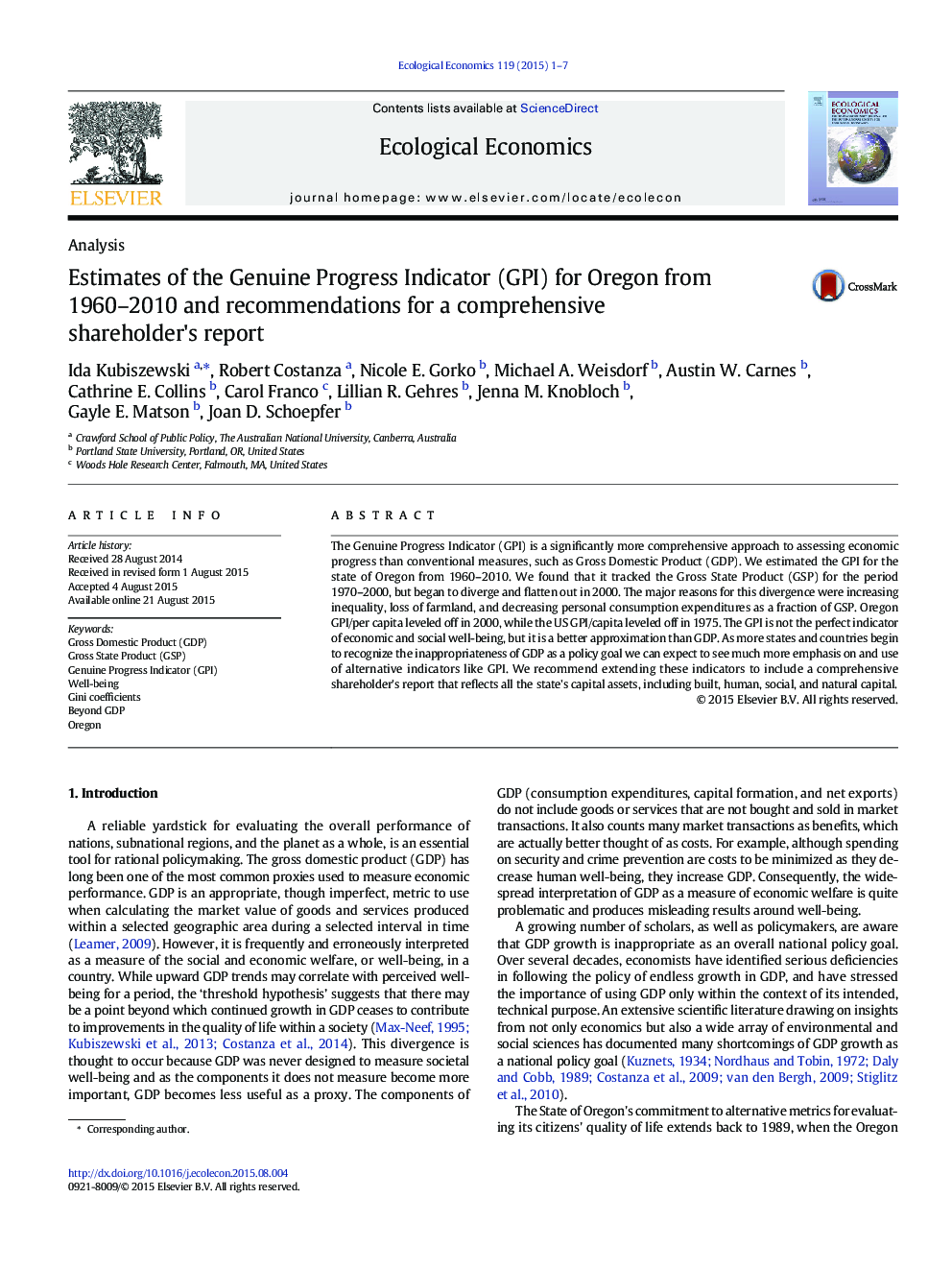| Article ID | Journal | Published Year | Pages | File Type |
|---|---|---|---|---|
| 5049226 | Ecological Economics | 2015 | 7 Pages |
The Genuine Progress Indicator (GPI) is a significantly more comprehensive approach to assessing economic progress than conventional measures, such as Gross Domestic Product (GDP). We estimated the GPI for the state of Oregon from 1960-2010. We found that it tracked the Gross State Product (GSP) for the period 1970-2000, but began to diverge and flatten out in 2000. The major reasons for this divergence were increasing inequality, loss of farmland, and decreasing personal consumption expenditures as a fraction of GSP. Oregon GPI/per capita leveled off in 2000, while the US GPI/capita leveled off in 1975. The GPI is not the perfect indicator of economic and social well-being, but it is a better approximation than GDP. As more states and countries begin to recognize the inappropriateness of GDP as a policy goal we can expect to see much more emphasis on and use of alternative indicators like GPI. We recommend extending these indicators to include a comprehensive shareholder's report that reflects all the state's capital assets, including built, human, social, and natural capital.
